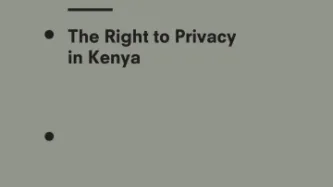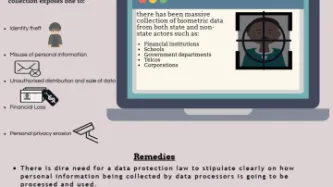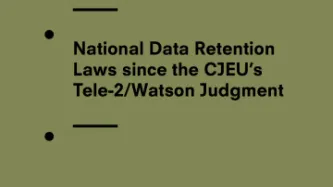Advanced Search
Content Type: Press release
A joint press release from Privacy International, Reprieve, CAJ, and the Pat Finucane Centre.
Agents of MI5 and other Government bodies could be legally authorised to commit crimes under new legislation introduced today. There appear to be no express limits in the legislation on the types of crime which could be authorised.
The Covert Human Intelligence Sources (Criminal Conduct) Bill appears not to explicitly prohibit the authorisation of murder, torture, or sexual violence. Reprieve,…
Content Type: Press release
MI6 has been forced to apologise to the Investigatory Powers Tribunal after two of its officers asked court staff to return documents relating to MI6’s use of agents and not show them to judges. The Tribunal suggested MI6’s actions were “inappropriate interference”.
The revelation emerged in an ongoing legal case considering what crimes intelligence informants are allowed to commit, after it was revealed that MI5 maintains a secret policy under which agents can be “authorised” to…
Content Type: Long Read
Background
Kenya’s National Integrated Identity Management Scheme (NIIMS) is a biometric database of the Kenyan population, that will eventually be used to give every person in the country a unique “Huduma Namba” for accessing services. This system has the aim of being the “single point of truth”, a biometric population register of every citizen and resident in the country, that then links to multiple databases across government and, potentially, the private sector.
NIIMS was introduced…
Content Type: News & Analysis
On 30 January 2020, Kenya’s High Court handed down its judgment on the validity of the implementation of the National Integrated Identity Management System (NIIMS), known as the Huduma Namba. Privacy International submitted an expert witness testimony in the case. We await the final text of the judgment, but the summaries presented by the judges in Court outline the key findings of the Court. Whilst there is much there that is disappointing, the Court found that the implementation of NIIMS…
Content Type: Advocacy
This stakeholder report is a submission by Privacy International (PI), the National Coalition of Human Rights Defenders Kenya (NCHRD-K), The Kenya Legal & Ethical Issues Network on HIV and AIDS (KELIN), and Paradigm Initiative.
PI, NCHRD-K, KELIN, and Paradigm Initiative wish to bring their concerns about the protection and promotion of the right to privacy, and other rights and freedoms that privacy supports, for consideration in Kenya’s upcoming review at the 35th session of the Working…
Content Type: News & Analysis
*Photo by Michelle Ding on Unsplash
Pat Finucane was killed in Belfast in 1989. As he and his family ate Sunday dinner, loyalist paramilitaries broke in and shot Pat, a high profile solicitor, in front of his wife and children.
The Report of the Patrick Finucane Review in 2012 expressed “significant doubt as to whether Patrick Finucane would have been murdered by the UDA [Ulster Defence Association] had it not been for the different strands of involvement by the…
Content Type: Long Read
*Photo by Kristina Flour on Unsplash
The British government needs to provide assurances that MI5’s secret policy does not authorise people to commit serious human rights violations or cover up of such crimes
Privacy International, along Reprieve, the Committee on the Administration of Justice, and the Pat Finucane Centre, is challenging the secret policy of MI5 to authorise or enable its so called “agents” (not MI5 officials) to commit crimes here in the UK.
So far we have discovered…
Content Type: News & Analysis
The Watson/Tele2 decision of the CJEU concerned section 1 and 2 of DRIPA and the Data Retention Regulations 2014. This contained the legislative scheme concerning the power of the Secretary of State to require communications service providers to retain communications data. Part 3 of the Counter-Terrorism and Security Act 2015 amended DRIPA so that an additional category of data - that necessary to resolve Internet Protocol addresses - could be included in a requirement to retain…
Content Type: Advocacy
RESPONSE OF PRIVACY INTERNATIONAL TO THE CONSULTATION ON THE GOVERNMENT’S PROPOSED RESPONSE TO THE RULING OF THE COURT OF JUSTICE OF THE EUROPEAN UNION ON 21 DECEMBER 2016 REGARDING THE RETENTION OF COMMUNICATIONS DATA
[Full response below]
Introduction
The consultation is in response to the judgment in Tele2 Sverige AB v Post-och telestyrelsen (Case-203/15) and R (Watson) v Secretary of State for the Home Department (Case C-698/15) [“Watson judgment”].
The case concerned…
Content Type: Explainer
In 2000, the Government told Parliament that the Regulation of Investigatory Powers Act 2000 (RIPA) was the total extent of surveillance powers that were needed. However, within weeks of RIPA receiving Royal Assent, a report from UK law enforcement was leaked, stating that the power the Government truly wanted was companies to retain communications data on all their users.
Immediately after 9/11 as governments around the world over-reached with new pieces of…
Content Type: Press release
Thames House, Offices of MI5. Photo Credit: Wikimedia Commons
MI5 collected Privacy International’s private data and examined it
GCHQ, MI5, and MI6 unlawfully collected data relating to UK charity Privacy International
Privacy International has written to the UK's Home Secretary demanding action against spy agencies
Disclosures come less than a fortnight after UK laws on mass surveillance ruled unlawful at European Court of Human Rights
The UK's domestic-facing intelligence…
Content Type: News & Analysis
Recently, a text from a local telecommunications company inquired whether its subscribers knew that they could now enroll their voice so they could access various services securely and conveniently. This added a further dynamic to the on-going debate in several quarters on the accelerated adoption of biometrics in Kenya. Does Kenya have the necessary framework in place to safeguard the privacy and security of its citizens? The reality is, innovators will not wait for an optimal…
Content Type: Advocacy
This report sheds light on the current state of affairs in data retention regulation across the EU post the Tele-2/Watson judgment. Privacy International has consulted with digital rights NGOs and industry from across the European Union to survey 21 national jurisdictions (Austria, Belgium, Bulgaria, Croatia, Cyprus, Czech Republic, France, Germany, Hungary, Ireland, Italy, Luxembourg, the Netherlands, Poland, Portugal, Romania, Slovakia, Slovenia, Spain, Sweden, and the United…
Content Type: Press release
Privacy International General Counsel Caroline Wilson Palow said
"Today's opinion issued by the Advocate General of the European Court of Justice (ECJ) is a serious blow to the UK's Investigatory Powers Bill (IPBill). It, hopefully, presages a strong judgment from the Court itself.
The bulk powers - what we would call mass surveillance powers - embedded throughout the IPBill go far beyond tackling serious crime. They would give a range of public bodies, not just the Police and…
Content Type: Press release
Tomorrow, Privacy International and Open Rights Group will argue that wholesale and indiscriminate retention of our personal data is not permissible. The case, brought by MPs Tom Watson and David Davis against the Data Retention and Investigatory Powers Act 2014 (DRIPA), and in which PI intervened, will be heard in the European Court of Justice (CJEU) on 12 April. It has the potential to send shockwaves through the Investigatory Powers Bill, the controversial…
Content Type: News & Analysis
Privacy International has joined forces with dozens of other human rights and civil liberties organizations around the world to ask the European Parliament to reject a Directive that would seriously compromise personal freedom in the EU. Below is the text of the letter to Members of the European Parliament, and the pdf is also available.
To all Members of the European Parliament
We the undersigned are calling on you to reject the 'Directive of the European Parliament and the Council…











